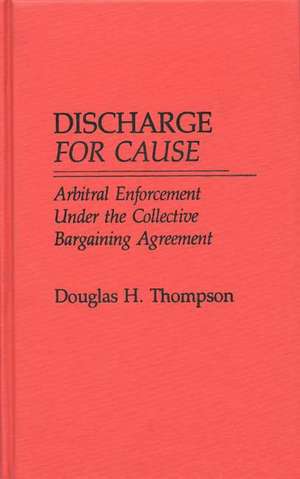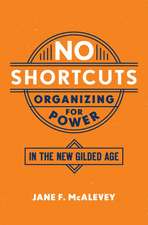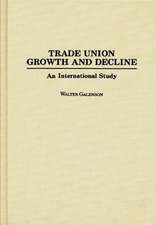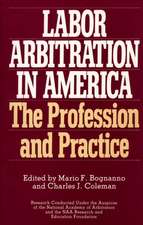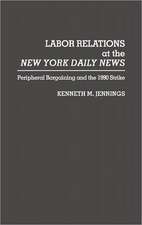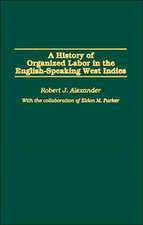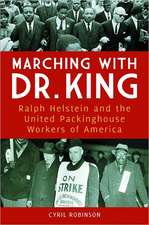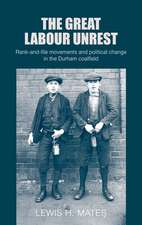Discharge for Cause: Arbitral Enforcement Under the Collective Bargaining Agreement
Autor Douglas H. Thompsonen Limba Engleză Hardback – 31 aug 1989
This professional book for labor arbitrators, mediators, administrative law judges, practitioners in the field of labor relations representing either management or labor (or both), and others involved in labor relations and dispute resolution provides insight into the elements of an arbitrator's decision-making process in disputes involving employee discharge. Drawing on his own extensive background in the field, the author uses his own advisory letters of opinion, written to the parties of a dispute, to outline issues involved and the reasoning processes used in making decisions. These letters are from real-life dispute situations and provide sample case studies in a variety of settings and fact situations allowing the reader inside the arbitral resolution process.
The work sets forth the factors that an arbitrator will likely consider to be important in his or her determination of when an action by the employer should be sustained (judged fair and right) or overturned (judged to be wrongful). The work takes the process of dispute resolution out of the unpredictable, moving it instead to the methodical search for basic elements that have been considered by the Courts to be fair and supportable. Legal terminology is used within the context of particular cases, but is not so excessive as to create a problem for the average labor relations practitioner.
Preț: 344.38 lei
Preț vechi: 555.54 lei
-38% Nou
65.90€ • 70.47$ • 54.94£
Carte tipărită la comandă
Livrare economică 17 aprilie-01 mai
Specificații
ISBN-10: 0275926230
Pagini: 175
Dimensiuni: 140 x 216 x 14 mm
Greutate: 0.38 kg
Ediția:New.
Editura: Praeger
Descriere
The work sets forth the factors that an arbitrator will likely consider to be important in his or her determination of when an action by the employer should be sustained (judged fair and right) or overturned (judged to be wrongful). The work takes the process of dispute resolution out of the unpredictable, moving it instead to the methodical search for basic elements that have been considered by the Courts to be fair and supportable. Legal terminology is used within the context of particular cases, but is not so excessive as to create a problem for the average labor relations practitioner.
